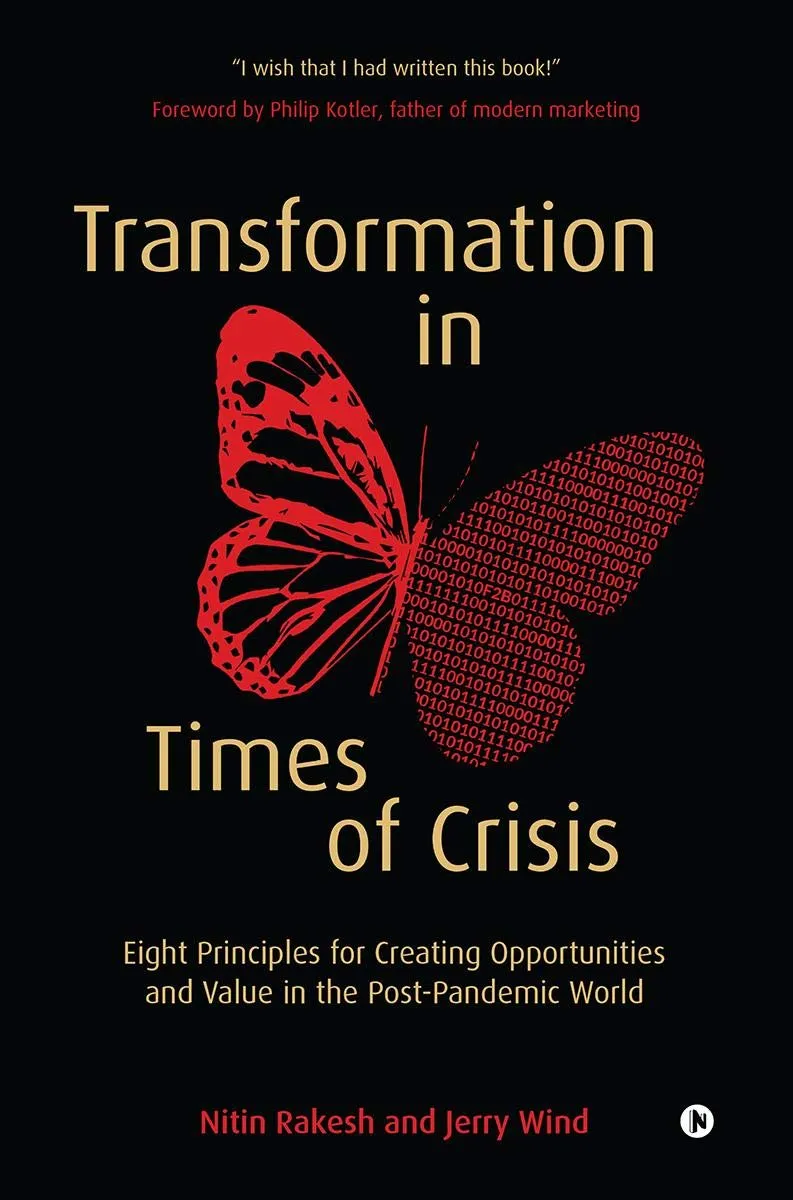Transformation in Times of Crisis: 8 principles to help entrepreneurs channel opportunities
Transformation in Times of Crisis, co-authored by Mphasis CEO Nitin Rakesh and academician Jerry Wind, provides entrepreneurs and organisations with solutions to survive the post-pandemic world.
COVID-19 has changed the world as we knew it. Digital transformation and reassessment of one’s skills is the need of the hour.
As experts around the world discuss the changes brought about the pandemic, Nitin Rakesh, CEO of IT solutions company Mphasis, along with Jerry Wind, Lauder Professors Emeritus and Professor of Marketing at Wharton School, are providing entrepreneurs and organisations solutions to survive the post-pandemic world, through their recent book Transformation in Times of Crisis.
The authors write, “The business landscape was going through changes that had been building for some 20-years...What the crisis has done is to accelerate the pace of disruption, and dramatically so.”

Published by Notion Press, Transformation in Times of Crisis revolves around eight principles for creating opportunities and value in the post-pandemic world. The COVID-19 pandemic has accelerated the pace of disruption, forcing companies and individuals to either transform themselves or be destroyed.
The book talks about how the pandemic can be converted into seeds of opportunity.
Indian-American entrepreneur Nitin’s career spans over two decades. He has led large transitional operations in Fortune 500 companies and is a distinguished leader in technology and financial services industries. Nithin has been serving as Mphasis CEO since 2017.
Prior to that, he was the founding CEO and Managing Director of Motilal Oswal Asset Management Company. Nitin is also the recipient of the 2019 American Business Awards - Gold Stevie, under the Tech Innovator of the Year - Services’ category.
Jerry, on the other hand, is an internationally renowned and award-winning academician. He joined Wharton in 1967, with a doctorate from Stanford. His pioneering research on organisational buying behaviour, market segmentation, conjoint analysis, and marketing strategy has resulted in him being one of the most cited authors in marketing.
Jerry has consulted with over 100 companies, and is on advisory boards of various companies and non-profit organisations.
Keeping the current scenario in mind, Transformation in Times of Crisis book talks about how individuals and enterprises can create opportunities in times of disruptions by offering readers eight principles:
- Challenging one’s mental models in order to stay ahead
- Reimagining and reinventing one’s approach to customers and stakeholders
- Speeding up digital transformation and design for personalisation at scale
- Reinventing one’s talent strategy and embrace open innovation and open talent
- Seizing the need for speed and designing for agility, adjacencies, and adaptability
- Innovating and then constantly experimenting
- Redrawing one’s timelines and building a portfolio of initiatives across all innovation horizons
- Deploying idealised design, recreating one’s organisational architecture and network orchestration
The primary objective of Transformation in Times of Crisis is to help readers implement these principles. And for that, Nitin and Jerry offer their users 10 tools over the course of the book.
It is an important and timely book for the world of entrepreneurship. The narrative cites journeys of successful businesses and entrepreneurs, including that of Tesla, Zoom, Walmart, Starbucks, and Toyota, among others, and how these companies made the best out of challenges that came into their way.
At the end of every principle, the authors list questions for the reader to let them assess how they and their organisation are aligned with the principle, ideas and examples discussed in each particular chapter.
While having a strategy is the first step, implementing it is the bigger deal. “Execution is king,” the authors write. And at the end of the eight principles, Nitin and Jerry advise readers on how to implement them effectively, in order to transform in times of crisis, chart one’s journey to success, and transform oneself into architects of disruption.
Transformation in Times of Crisis spans 549 pages, including the index and has done a brilliant job when it comes to the structure and design of the contents.
The book is loaded with insightful quotes, citations and analysis. It comes off as an easy read. Transformation in Times of Crisis talks about big picture ideas, and provides practical advice in a way that not just seems do-able, but achievable by entrepreneurs, big and small.
Edited by Saheli Sen Gupta








